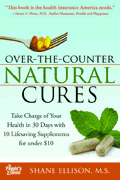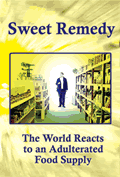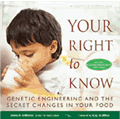CODEX AVOIDS IMPLOSION - BY FIVE VOTES
by
Scott Tips, JD
July 17, 2011
NewsWithViews.com
Ractopamine Almost Shoved Down the Throats of 70% of World's Pork Consumers Who Don't Want it
It was high drama worthy of any best-selling spy thriller as intrigue and rumors of blackmail coursed through the room with near reckless abandon. Passions were high and stances adamant. With such an electric atmosphere, one could have thought that nations were being partitioned, or even put to the sword. Yet, for us, the essential reality was not that distant a cousin. There were countries trying to impose their will on the majority, trying to pollute the World with a poison that would injure many millions. The stakes were serious.

A Codex delegate casts his vote on the Ractopamine
issue
Surprisingly, the battlefield for this drama was in a modern, air-conditioned meeting hall rented by the Codex Alimentarius Commission (CAC) for its 34th session in Geneva, Switzerland this last week of July 4-9, 2011. More jammed together than at last year’s meeting in a larger hall, the elbow-jostling delegates and their emotions were not helped by such close quarters. Still, the outgoing Chairwoman Dr. Karen Hulebak and the Codex staff did a commendable job at moving the lengthy agenda along to completion, allowing all parties, including the National Health Federation (NHF), to have their say during the debates.
Ractopamine . . . Again
The issue that created the most strife among the delegates, though, was the highly charged draft standard for ractopamine Maximum Residue Levels (MRLs).[1] Those who have been following this Codex debate will remember that ractopamine is a beta-agonist drug given to pigs and cattle to promote protein and weight gain before slaughter. This veterinary drug, developed and owned by Eli Lilly’s Elanco Technology, takes nutrients away from fat production and pushes them instead into muscle, creating a leaner and more-valuable animal[2] While the U.S. Food and Drug Administration (FDA) approved this drug for animal use in 2002, three years later it sent Elanco a warning letter accusing the company of withholding critical information that had led to approval.[3]
Most of the World’s countries (some 160 at last count) wisely do not allow ractopamine-doped meat to be sold within their borders. Especially strict is the European Food Safety Authority (EFSA), which has found that ractopamine constricts blood vessels and quickens the heart.[4] EFSA also has strong concerns about the drug’s carcinogenicity as well as its stressing and other adverse effects on the animals given the drug. As for humans, since there is no clearance period of two weeks prior to slaughter as with other veterinary drugs to rid the meat of drug residues, consumers are being medicated with ractopamine residue when they eat the treated meat.[5] The Chinese Government has spent many millions of Yuan in studies of the health effects of ractopamine and, convinced of its health risks, has banned both its import and export.[6] As a further nail in ractopamine’s coffin, EFSA and its member states have a very sensible public-health policy against drugging healthy animals just for steroid-like effects.
Yet, JECFA[7] conducted its own industry-influenced assessments of the risks of ractopamine and established MRLs for ractopamine residues that have been seized upon by the drug’s promoters as “proof” of its safety.[8] Holding aloft JECFA’s reports as fervently as any Maoist brandishing Mao’s little red book in 1966 China, the pro-ractopamine group conveniently overlooks the fact that JECFA’s study groups consisted of only six healthy human males and a band of monkeys (the embarrassing dog study having been slyly omitted from the reports). JECFA science is often both political and highly suspect, a fact that escapes most Codex delegates.[9]
Health versus Wealth . . . Again
The two camps (pro- and anti-ractopamine) were little changed from last year’s contentious Commission meeting. If anything, the pro-ractopamine camp had grown as the United States had cajoled various African delegations into supporting ractopamine doping of animals. Who knows what promises or threats were made to corral these countries into the American/Canadian/Brazilian camp? But such ponderings pale when compared to the sudden, almost-comic appearance at this meeting of postage-stamp-sized countries like Vanuatu and Samoa. Not surprisingly, these “countries” – which collectively could not oppose the military might of, say, the City of Des Moines, Iowa – supported the U.S. position.
Even Fiji had been flown in for this event, its delegate looking at one point with his flowered shirt as if he had just strolled in off the beach – and not talking very much differently either with his casual American accent and manner of speech. I half expected to see him sipping an umbrella-topped Mai Tai. Indeed, Fiji’s presence at the meeting had all of the dirty fingerprints of a politician rounding up the homeless off the city streets and bussing them to the polling booths so they could vote him into office in exchange for another square meal. Would it really stun anyone to know that the grand states of Fiji, Samoa, and Vanuatu had sold their souls too?
For the larger, core supporters of this unnatural hog-steroid drug – and its MRLs, which would permit it to be sold throughout Codex countries – (Canada, the United States, Mexico, Cuba, Costa Rica, Panama, Peru, Argentina, Brazil, Chile, Australia, Ghana, South Africa, the International Council of Grocery Manufacturers Association (ICGMA), and the Elanco-created International Federation for Animal Health), getting ractopamine MRLs adopted by Codex means money, and lots of it. Since more than 70% of the World’s consumers of pork reside in markets shut off by law from ractopamine-doped meat, Codex-approved MRLs are seen by this camp as the magic keys to opening that door and, hence, to life on Easy Street. Drug pushers that they are, these countries rank health concerns as of lesser importance – an annoying nuisance to be swatted away with flimsy excuses. And the U.S. government is no stranger to using pressure to get other countries to accept its doped meat.[10]
Fortunately, there has been strong opposition to ractopamine. These opponents (that is, all of the European countries, Turkey, Russia, China, Japan, India, Kenya, Zimbabwe, Iran, Iraq, Egypt, and the INGO consumer organizations Consumers International and NHF) have or else support laws in place to guard against such animal doping. Quite creditably, they are protecting their citizens from a synthetic drug that many scientific studies have shown to risk the health of humans and animals. Their call was for the Commission to discontinue its work on the ractopamine standard.
The Lead Up
Between last year’s Commission meeting and this one that just ended, attempts were made to break through the impasse between the two camps. At the conclusion of last year’s meeting, the Chairwoman created a “Friends of the Chair” (FOTC) group (a new concept to Codex), composed of representative elements from the two opposing camps and that was to meet in facilitated sessions before this year’s meeting in order to reach a compromise. But as NHF argued back then, how do you compromise between allowing a poison and not allowing a poison in your food? You don’t. It is either there or it’s not.
Regardless, the participants at the four FOTC meetings held between July 2010 and July 2011 tried to reach a compromise that could be presented to this CAC session. In retrospect, the Chairwoman’s genuine dedication to seeing this process through to successful completion cannot be doubted. Such sincere efforts, though, were not without their casualties along the way, including the European Union’s trust when it perceived that it had been ambushed by a pro-ractopamine “facilitator” who suddenly materialized at one of the FOTC sessions to “help matters along.” Who could blame the EU for feeling that way after such a surprise?
Unremarkably, the FOTC sessions came to naught. Still, they were the lead up to the drama that unfolded at this month’s Commission meeting. The stage was set for a showdown between two implacable camps.
The Showdown
When its turn on the Agenda came Tuesday mid-morning, the proposed ractopamine standard commanded everyone’s attention. All delegates listened in silence to the Chairwoman as she very accurately characterized the crux of the issue before them, “Ractopamine is only one drug, but in a way it is a referendum on Codex decision-making.” She then continued, “I want to defend the core principles of Codex, and I have done my best to be fair, balanced, and unbiased.”
The delegates were then recognized one after one to speak their minds, with the pro-ractopamine forces weighing in heavily in the beginning, always stating that Codex needs these MRLs. Switzerland then began the avalanche of responses by the anti-ractopamine camp. Jerome Lepeintre, speaking expressly for the EU delegation and implicitly for many others, expressed the EU’s opposition to the standard and challenged its supporting science by aptly arguing, “How can science rejected by so many countries be considered credible?”
This debate went on for two hours and then continued again for another hour after the lunch break. No fewer than 60 country delegates spoke out before, finally, four INGOs were recognized by the Chairwoman to address the Commission. The two drug-industry INGOs spoke first and of course supported adoption, one even ironically lamenting that “Codex should not be used for political purposes.” Consumers International’s Dr. Michael Hansen countered with his observation that “this standard is about bringing a challenge at WTO” so that ractopamine can be forced on unwilling consumers. As usual, the National Health Federation was the last to speak, attacking point-by-point JECFA’s “science” and arguing that the drug’s proponents cannot claim that they are helping to feed the World’s increasing population when the drug creates ill health.
The Referendum on Codex
After a break, Chairwoman Hulebak summarized the Commission’s options as: (1) Hold this standard in abeyance; (2) Discontinue work on the standard; or (3) Vote on its adoption. At Codex, voting is by far and away the most distasteful option since it underscores that general agreement – consensus – cannot be reached amongst the delegates. It is akin to admitting failure. It also risks a perhaps irreparable rupture among the Codex delegates, a point soon to be made by the EU and Russian delegates.
With a certain moth-like quality that kept her circling to destruction, the U.S. delegate immediately demanded a roll-call vote. She was in turn somewhat supported by the Canadian, Brazilian, and Australian delegates’ calls for a secret vote. Anti-ractopamine China argued that voting would go against Codex’s policy of working toward consensus, a view shared by the EU, which also darkly warned that should the vote go against the EU, China, Russia, and India – that is, against the more than 70% of the World’s pork producers and consumers – then there could be serious repercussions for Codex as a credible institution. Presciently, Japan suggested that there might need to be a vote taken on whether or not to even vote.
The debate among the Codex member countries as to whether to vote or not lasted more than 45 minutes until the Chairwoman, whose year-long dedication to thrashing out a compromise was perhaps greatly underappreciated until now, showed her true mettle and clear thinking by ruling that with most countries arguing for consensus, the conditions for a vote did not exist and therefore there would be no vote. With the views almost evenly divided, she said, the ractopamine standard should be held in abeyance at its final Step 8.
However, confident that it had the votes to force its ractopamine-doped meat on the rest of the World, the U.S. delegate and her minions pushed the Chairwoman into a forced vote on the issue of whether or not Codex should adopt the ractopamine standard. But first, Codex legal counsel interjected, Japan’s idea that delegates should vote on whether to vote should be implemented. The Chairwoman agreed and that was her ruling with a special twist.
To the confusion of many, the first voting was done by a roll-call vote of the delegates to determine whether they wanted the subsequent vote to take a vote to be by secret ballot or not. The majority voted yes, but by then the day was done and the meeting adjourned. Lobbying of delegates would happen overnight and the voting bright and early the next morning.
Day Three of the CAC meeting – Wednesday, July 6th – came quickly, but the voting did not. It took nearly two hours for the delegates to finish casting their secret ballots on whether or not to then vote again on adopting or rejecting the ractopamine standard. Those votes were then counted and the Chairwoman announced the vote: 59 in favor of voting, 68 opposed to voting, and 9 abstentions. The anti-ractopamine forces had won by 9 votes, but if only 5 of those votes had switched allegiance, then the outcome could have been dramatically different for Codex and for all of us.
The What If . . . .
As it turned out, the Chairwoman’s first instinct – to not vote and simply hold the standard in abeyance – was absolutely correct. Her initial decision was ultimately supported by the subsequent tedious debate and two rounds of voting that circled everyone right back to this original position.
But what if the vote had gone the other way? What if the U.S.-Canadian-Brazilian bloc had won the day and their ractopamine standard had been advanced over extremely strong objections to final adoption? Then what?
In a voting arrangement where tiny Fiji’s vote has the same weight as giant China’s, it could have led to an awkward result where the minority was dictating terms to the majority. It could have led, as some warned, to the demise of all credibility and belief in Codex itself. In the extreme, it could have ultimately led to Codex imploding. Five votes cast differently and there might have been delegations walking out of Codex, a result that not everyone would have rued.
The Ugly American
The word on the street was that had the ractopamine standard passed (and it still could at next year’s meeting), then Brazil planned to launch a WTO trade challenge against the EU, while the U.S. had similar plans against China. Already the U.S. and Canada have complaints regarding the EU’s ban on meat treated with growth-promoting hormones.[11] Codex standards have become weapons, as well as shields, in WTO trade disputes concerning food.
The U.S. and Canadian delegates know this all too well, and they plot their coordinated strategies around creating legal bases for trade challenges or threats of trade challenges so that they can sell more of their doctored foods around the World. Since the Canadians are perceived more as the remora fish of North America, clinging onto the United States, it is the Americans themselves who are seen as the big bullies at Codex meetings, using whatever means at hand to achieve their pecuniary goals. More than once I heard extremely harsh words expressed by others against the actions of the U.S. delegate.
To many of the Codex delegates, the United States’ actions seem purely money oriented. If health or science is ever mentioned by the American delegate, one can almost always be sure it has been twisted towards this solitary goal. It is all about money – and health be damned.
When the U.S. delegate first spoke out in support of ractopamine doping, she meticulously read her oh-so-carefully prepared script in a weak, falsetto voice that had me straining to see what she looked like and if she had actually graduated yet from high school. Her speech was a script, well-written but devoid of any conviction. She might as well have been reading from her shopping list. By contrast, when the EU and Norwegian delegates spoke, it was obvious their extemporaneous words came from a heart-bound belief in what they were saying.
Later, during the review and correction of the CAC report on the last day of the meeting, the U.S. delegate revealed just how utterly petty she could be. The NHF had been specifically mentioned in the report as opposing the adoption of the narasin standard for animal use. No one had objected to that mention, not even the Chairwoman; but the U.S. delegate specifically demanded that NHF’s name be removed from the report and our comment referred to anonymously. Having succeeded there, the U.S. then tried but failed to have a specific reference to the EU removed in a later paragraph. And yet with her goldfish-like memory, the US delegate saw no hypocrisy in attempting to insert comments into the report that she had not even made. Is it any wonder that so many dislike the U.S. at these meetings?
| Subscribe to the NewsWithViews Daily News Alerts! |
But perhaps the biggest offense of all is that the American delegates never seem to learn from others, or even be open to learning. Sophocles wrote words long ago that are just as true today: “It can be no dishonor to learn from others when they speak good sense.” Many delegates spoke good sense when they explained their opposition to ractopamine doping. The U.S. has one calendar year until the next Commission meeting that will take up again the ractopamine debate. Next time, what will it be for the United States? Honor? Or more dishonor?
� 2011 - Scott Tips - All Rights Reserved
Footnotes:
1-
Ractopamine hydrochloride is a veterinary drug shown chemically as dl-p-alpha-[[[Hydroxyphenol-1-MethylPropyl]Amino]Methyl]Benzene
Methanol Hydrochloride (two Diastereomeric forms: RS,SR and RR, SS).
The proposed Acceptable Daily Intake (ADI) would be 0-1 µg/kg
of body weight (1 µg/kg equals 1 part per billion); and Maximum
Residue Levels (MRLs) of 10 µg/kg of body weight for muscle and
fat tissue, 40 µg/kg of body weight for liver tissue, and 90 µg/kg
of body weight for kidney tissue in cattle and pigs.
2-
See: (“typical
farms should expect a net return of $2-3/pig sold.”)
3-
The 14-page letter read in pertinent part: “Our representatives
requested a complete and accurate list of all your GLP [Good Laboratory
Practices] studies involving Paylean® (Ractopamine hydrochloride),
including their current status as well as the names of the respective
study monitors. In response, your firm supplied to our representatives
multiple lists which differed in the names of the studies and their
status. In addition, your firm could not locate or identify documents
pertaining to some of the studies. This situation was somewhat confusing
and created unneeded delays for our representatives.” Moreover,
the letter asks: Where was mention of the farmer phone calls to Elanco
reporting, "hyperactivity," "dying animals," "downer
pigs" and "tying up" and "stress" syndromes.
Where was the log of phone calls that included farmers saying, "animals
are down and shaking," and "pig vomiting after eating feed
with Paylean"?
4-
The
EFSA Journal (2009) 1041, 1-52.
5-
As much as 20% of Paylean (given to pigs for their last 28 days), Optaflexx
(given to cattle their last 28 to 42 days), and Tomax (given to turkeys
their last seven to 14 days), remains in consumer meat, says author
and well-known veterinarian Michael W. Fox. (See
article)
6-
China
bans import, export of ractopamine.
7-
JECFA is the acronym for the Joint FAO/WHO Expert Committee on Food
Additives, and is the Codex-spawned expert group upon which Codex Committees
rely for expert scientific opinions in forming Codex standards.
8-
JECFA’s risk assessments were undertaken in 2004, 2006, and 2010
and provided its recommended MRLs for Ractopamine (Ractopamine hydrochloride)
in the target tissues (muscle, fat, liver, and kidney) for cattle and
pigs.
9-
Far too many Codex delegates blindly worship at the false altar of JECFA
science, believing that JECFA, like some ancient Greek oracle, infallibly
proclaims the truth. This religious adulation of JECFA amongst delegates
supposedly trained in science is one of the most incongruent aspects
of Codex this writer has ever encountered.
10-
“U.S.
Senators Press Taiwan on Ractopamine Ban,” Food Safety News,
April 20, 2011.
11-
Report
by the WTO Secretariat on the Activities of the WTO SPS Committee,
2011, at pp. 6-7, para. 37, first bulletpoint.












 Share
This Article
Share
This Article





